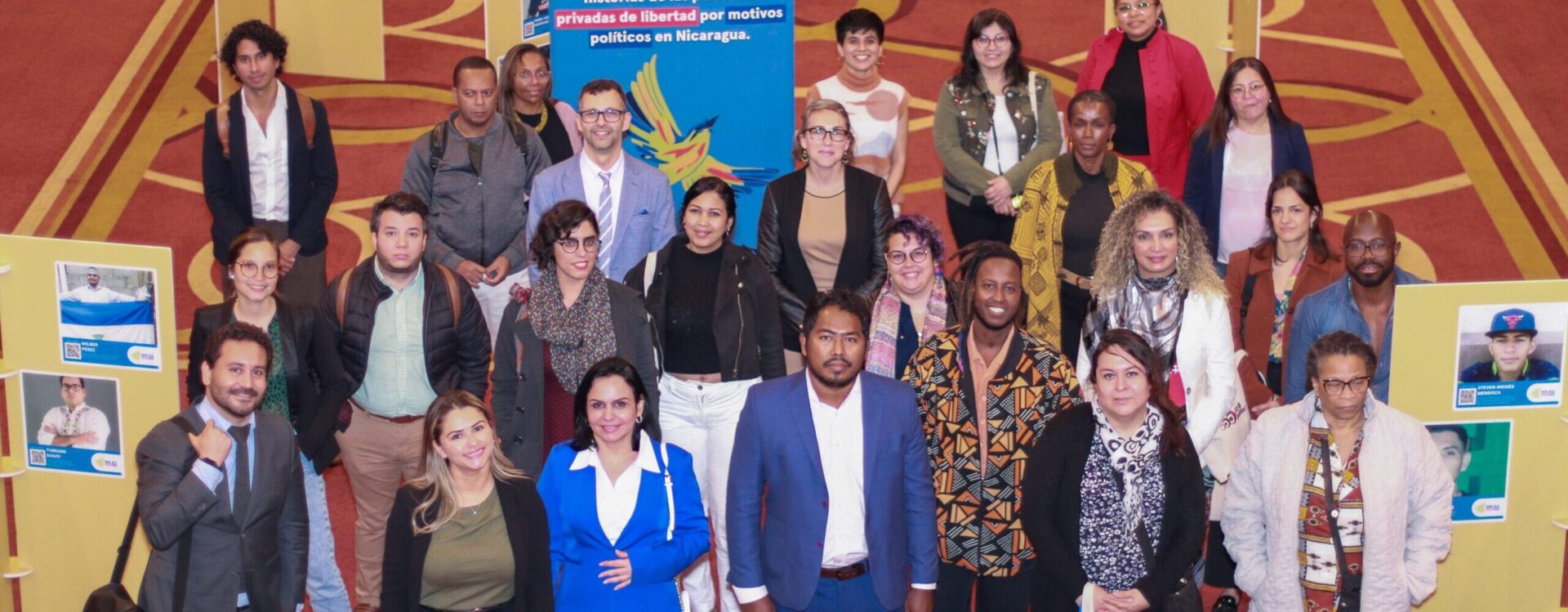Historia de Yolanda Santana. Dama de Blanco ex prisionera política del Estado Cubano pero víctima de represión
Tantas veces la han detenido, que Yolanda ya no recuerda cuántas veces han sido. Cree que fueron unas 200 veces, pero la cifra podría ser más alta. Los arrestos casi siempre sucedían después de ir a la iglesia, cuando las Damas de Blanco, el grupo al que pertenecía desde el 2013, protestaban por la libertad y la democracia del pueblo cubano.
Algunas veces ocurría en plena calle: la Seguridad del Estado las atacaba a golpes, las esposaba y las llevaba a la comisaría; otras veces, los agentes esperaban a que abordaran el transporte público después de la protesta: detenían el bus, localizaban a las mujeres vestidas de blanco y las bajaban para golpearlas y escupirlas; y en varias ocasiones las tuvieron retenidas en una patrulla policial, con los vidrios arriba y bajo el sol abrasivo de La Habana en pleno verano.
Casi siempre las liberaban muy tarde por la noche, pero en algunas ocasiones las retenían por más de 24 horas, sin poder comunicarse con sus familiares, sin acceso a comida ni a servicios higiénicos. Lo seguro era que les impusieran multas de 150 pesos, bajo la excusa de que habían violado dispositivos de la Seguridad del Estado.
“Yo no puedo entender de que haya violado dispositivos de la Seguridad del Estado al salir yo de mi vivienda y tratar de llegar a una iglesia, yo no he cometido ningún delito”, reflexiona Yolanda Santana, de 55 años.

Juicio
Y fue precisamente por esas multas que se iban acumulando, que un 6 de julio de 2018 la citaron al Tribunal de Arroyo Naranjo. Ese mismo día, las autoridades judiciales le montaron un juicio exprés y la condenaron a un año de prisión por incumplimiento de pago de 12 multas de 150 pesos. En las multas que le impusieron, la acusaban de venta ilícita y trámites de licencia de venta, una acusación que además de ser ilegal, Yolanda desconocía. La deuda, según el Estado cubano, ascendía a 18 mil pesos.
“No me pusieron abogado y yo no puse tampoco. No pude presentar pruebas ni testigos a mi favor porque la Seguridad del Estado no lo permitió”, cuenta la activista. Ella se rehusaba a pagar las multas porque las detenciones habían sido arbitrarias, y por lo tanto, las multas también lo eran.
Prisión
Poco después la trasladaron a la Prisión de Mujeres de Occidente, “El Guatao”, una cárcel que alberga a mujeres que han sido víctimas de las arbitrariedades del sistema de justicia penal de Cuba, incluyendo a las presas políticas. Yolanda, como muchas otras mujeres, denunció que las condiciones en El Guatao eran deplorables: “La comida era podrida, causaba vómitos, no te la podías comer”, cuenta. Además de que había hacinamiento en las celdas, pues en cada una dormían 28 reclusas, los policías golpeaban a las mujeres, les quitaban el derecho a recibir visita conyugal y de hacer llamadas a sus familiares.
Esto último le pasó a Yolanda: por tres meses no tuvo derecho a usar el teléfono, en represalia por haber denunciado las condiciones de la prisión. En un par de ocasiones, también fue hostigada por otras mujeres internas, quienes Yolanda cree fueron enviadas por la Seguridad del Estado.
“Mis hijos, mi madre y mis nietos sufrieron mucho por esta condena, pero se mantuvieron fuertes apoyándome”, asegura Yolanda.
Cada vez que se despedía de sus familiares, quienes la visitaban en El Guatao, era una prueba de fuego para la activista cubana: “tener que levantar la cabeza y tragarme mis lágrimas para que ellos no me vieran mal. Es muy triste estar en prisión”, relata.
Finalmente, el 6 de julio de 2019 Yolanda cumplió su condena y salió de prisión.
En casa, pero sin libertades
Yolanda comparte su hogar con su hijo, de 31 años, su nuera y su nieto de 12 años. Su otra hija, de 35 años, y sus otros tres nietos, todos menores de edad, viven muy cerca de ella. La activista fue “madre y padre para sus hijos” y también es fuente de apoyo para sus nietos, quienes le llaman “Mima”.
Poco tiempo después de salir de prisión, Yolanda se reintegró a su activismo dentro de las Damas de Blanco. Desde 2013 se había unido al grupo porque su propio hermano había sido un preso político del Gobierno de Cuba. Sintió que era un deber unirse nuevamente a sus compañeras para seguir haciendo incidencia por las personas apresadas por motivos políticos.
Hasta la fecha, la represión en su contra y las amenazas continúan por parte de los oficiales cubanos. Sus hijos también han sido detenidos en varias ocasiones. El pasado 15 de marzo, mientras salía de la sede nacional de las Damas de Blanco, unos agentes se acercaron a Yolanda para amenazarla con que la llevarían nuevamente a prisión, pero esta vez por una condena de 4 a 8 años. En menos de un año que lleva en libertad, ya le han asignado nuevas multas como forma de amedrentarla.
Pero la convicción de Yolanda es difícil de tumbar. “Si me toca nuevamente por mi activismo político pues estoy lista, siempre estamos listas y mi familia preparada, si ellos pensaron que con eso iban a doblegar se equivocaron porque lo que hicieron fue fortalecerme”.



